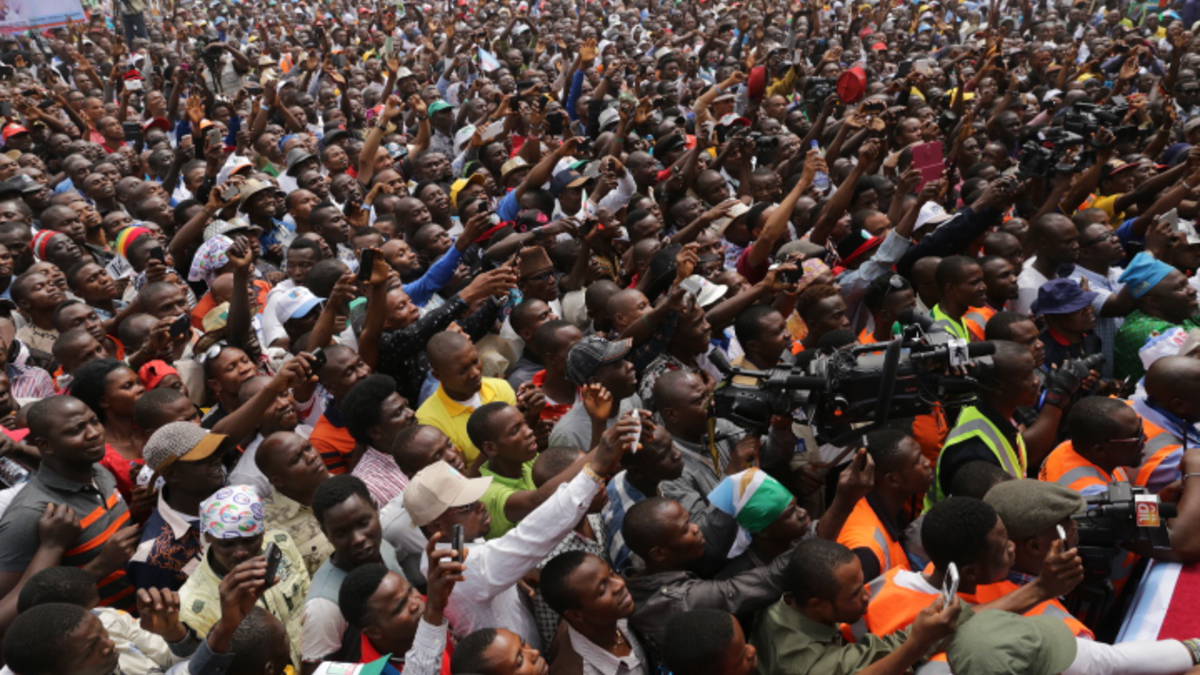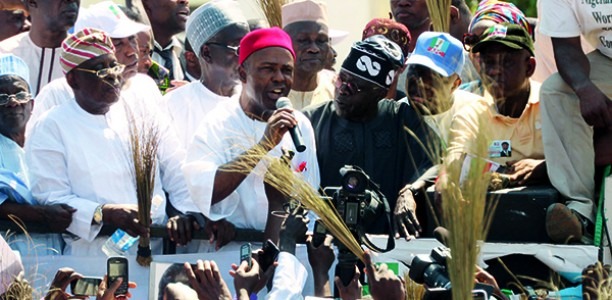Following the conclusion of the 2015 elections in Nigeria, various postmortems were proffered as to why the Buhari-led All Peoples Congress (APC) practically obliterated (at the polls) the self-acclaimed largest party in Africa, which has ruled Nigeria in the last 16 years. Some blamed poor overall performance on the part of the PDP. Some said it was the fault of the people close to former president Jonathan who ill-advised and misguided him. Others put it on the former president himself for being a weak leader and letting his lieutenants run out of control. Then, of course, there were the usual cries of corruption, albeit corruption was said to have run wilder than usual this time around.
In yours truly’s own little contribution, expressed on my Facebook page, I posited that the electoral defeat of the PDP by the APC was due to a combination of all of these reasons and more. But, I also identified the relative discipline and cool-headedness (unusual for Nigerian political parties)with which the APC ran its campaign and its ability to simplify the narrative into one word, “change”, and stay on message with it throughout the campaign. In contrast, the PDP was all over the map with regard to its campaign strategy and even tactics. It was as if the party had new ones each week. There also seemed to be a disconnect between what the former president’s close campaign team was doing and what the PDP was doing as a party. So, the APC ran a relatively good campaign and won. The party promised change, which was in alignment with exactly what the people want.
Then after the elections, the APC and various political commentators seemed to be suggesting that people should now lower their expectations of the APC. “Expectations are sky high”, “Expectations are too high”, “People should not expect a miracle”, and the like became the new post-election buzz phrases. While I understand that managing people’s expectations as a way of laying the groundwork for governance, I disagree that people should lower their expectations from the new APC government. Expectations should remain high and people should not relent on keeping them high until they begin to see the promise of change fulfilled in different fronts. Even then, people should still not let up on their high expectations to ensure that the change, if it happens, is consolidated over the long haul.
Part of the problem in Nigeria all along is that people have generally been docile with regard to their responsibilities as citizens in checking against the excesses of their leaders and have held little or no expectations of them. Politicians and government officials, being keenly aware of this regrettable characteristic of the average Nigerian voter, have operated with impunity in stealing and wasting public resources. There is no question, therefore, that Nigerians must kick this bad habit of docility and low expectations of those who lead them in order for things to change for good. In this regard, they must vigilantly keep the feet of the new APC government to fire, to truly deliver on the change it promised.
But, let’s be honest. Keeping the expectations high of the new APC government and holding it accountable for the change it has promised is only half the story here. Expectations from the people, in terms of behavioral change, must be high as well. In a recent publication1, I suggested that the Nigerian people must be a big part of the change equation. In this regard, I am reminded of the famous line from John Fitzgerald Kennedy, in his presidential inaugural address, which said: “ask not what your country can do for you—ask what you can do for your country.”
With the situation being as bad as it is in Nigeria, one may wonder if this is even doable in Nigeria. After all, we are talking about a country where corruption and bad behaviour have become institutionalized and permeated virtually every part of the societal fabric, ranging from the man on the street to the man in the executive suites in both the private and public sectors. Who will be ready to change in the interest of the country? Is it the Nigerian passengers that I described in my “poor citizenship” article1 who would suddenly become rowdy as the plane descend into Nigeria airspace and jump out of their seats before the plane would taxi to a complete stop? Is it the generator importer who bribes the power supply officials to compromise the supply of electricity so that he can sell more generators at great inconvenience and expense to the people and the environment? Is it the petrol station owner who routinely mixes petrol with kerosene or some other liquid to increase the quantity and make more money, knowing that the adulterated petrol will damage the vehicle of the unsuspecting buyer? Is it the mechanic who intentionally damages his unsuspecting customer’s vehicle so that he can then fix it for more money? Is it the driver who regularly connives with the mechanic to damage the boss’s vehicle so that they can share the money derived from the unnecessary repairs that ensues? Is it the houseboy who routinely siphons diesel fuel meant for his boss’s generator so that he can sell it in the black market? Is it the insanely corrupt civil servant who has wealth and leads a lifestyle that is staggeringly greater than his or her salary? Is it the law enforcement agent (police, customs, etc.) who is first to violate the law for money? Is it the lecturer who insists on sleeping with his female students in order for them to pass his course? Is it the rogue politician (governor, senator, assemblyman, LGA chairman, etc.) who is devoid of ideas and is only in politics to profit from it in some of the most despicable ways seen anywhere in the world? Is it the housemaid who regularly overstates the budget given to her boss for household items so that she can pocket the difference?
So in a society as systematically and deleteriously corrupt as Nigeria is, can people do what is intended by that JFK’s famous question? As herculean an expectation as it is, I think yes it can be done. It must be done. Otherwise, no one should hold his or her breath about turning things around in the country. Fortunately, we have a life-time opportunity now to get started with it. At the moment, it is just an opportunity. What is done with the opportunity in leading the society toward this change will determine whether or not it happens. But going by the new president’s reputation as a serious and disciplined leader as well as recent subtle signals that he has been sending about how he might lead Nigeria by example, you could say that there is still hope for the country.
Notes:
- Chidubem L. Anyanwu, “Poor citizenship is a huge part of the problem with Nigeria,” The Heartlander, June 4, 2015.
__________________________
Chidubem Len Anyanwu, Ph.D., is Senior Professor of Economics and Management Consultant in New Jersey, USA




